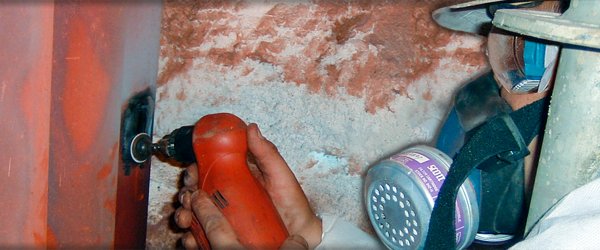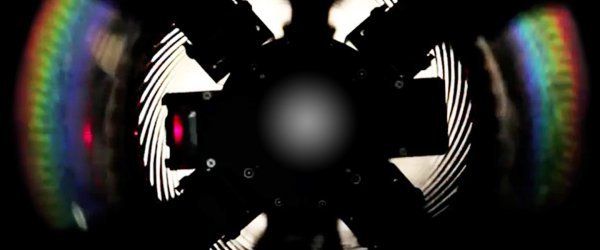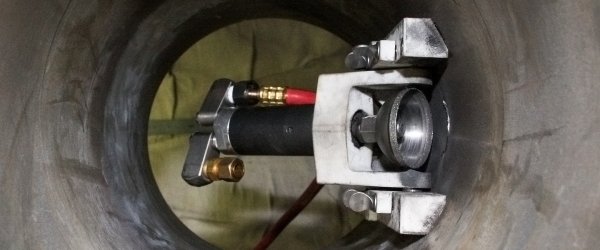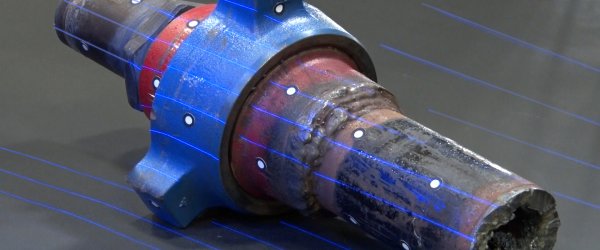Field Metallurgical Replication (FMR) is a non-destructive metallurgical inspection technique that is used for evaluating microstructures of plant equipment such as heaters, boilers, piping and reactors – often a key component when conducting a Fitness for Service (e.g., API 579-1ASME FFS-1) evaluation. FMR is often the least disruptive and most cost-effective option for metallurgical examination when making important run, repair or replace decisions. By comparison, cutting samples for laboratory testing is often more expensive, takes the equipment out of service, and can be difficult to repair.
It is a simple process. Using portable equipment, the metal surface is ground and polished to a mirror finish. The polished surface is subsequently etched to reveal the microstructure. A replica of the etched surface is then made with a thin piece of acetate film.
The replica can then be examined in the field using a portable optical microscope or in the laboratory. This process gives our metallurgical engineers the ability to examine microstructural features such as grain size, cracks, carbides, and other damage mechanisms. It can confirm observations made by other nondestructive methods such as acoustic emission tests, penetrant examination and ultrasonic flaw detection and take those evaluations a step further to identify the nature of the flaw. For example, whether a crack is intergranular corrosion or transgranular fatigue can be determined.

FMR should be considered if a component is in high temperature service or requires the use of a non-destructive technique. One major advantage is that you don’t have to cut any samples for analysis and the equipment may not need to be taken out of service for this inspection. When evaluating plant equipment, field metallurgical replication can be an important tool for making run, repair or replace type decisions.
A fitness for service (FFS) assessment generally needs to verify shape, thickness, mechanical properties and metallurgical condition of a component. Some level of engineering analysis is also required. FMR is one task that may be required within the framework of a fitness for service assessment. Stress Engineering Services has a staff of highly qualified materials engineers and metallurgists, strategically located in offices throughout North America, and devoted to properly diagnosing the materials suitability for continued service.
We provide teams of metallurgists and technicians to conduct the in-situ FMR assessments or, if needed, leverage resources back at our laboratories. This approach enables us to quickly assess degradation mechanisms that impact the service life of your equipment. These results can also be used as important inputs in fitness-for-service assessments (e.g., API 579-1ASME FFS-1).








